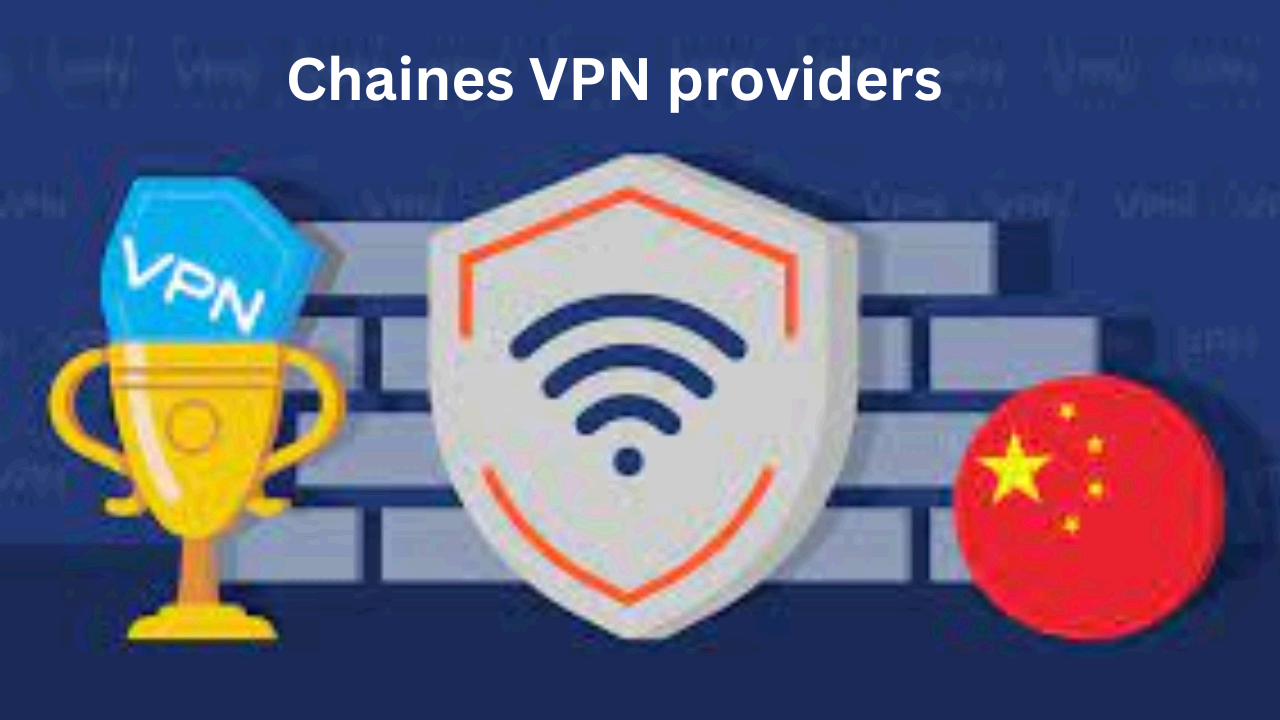News of Chinese VPN providers accused of data breaches has raised concerns about VPN security breaches and protecting privacy when bypassing internet censorship. Our analysis will break down the risks, provide tips for staying secure, and explain how to avoid VPN security breaches.
We’ll specifically examine the allegations against Chinese VPNs like SuperVPN and highlight the advantages of choosing a trustworthy VPN provider to limit vulnerability to data leaks and surveillance.
Chinese Providers Face VPN Security Breach Allegations
In July 2022, investigative reports by the Digital Citizens Alliance and the Sunday Times alleged that several popular Chinese VPN browser extensions like SuperVPN, GalaVPN, and MateVPN were linked to malware and exposed user data.
These VPN providers had millions of global users, according to extension download figures. Yet their backend infrastructure, based in China, and opaque ownership raised security questions.
Leaked data indicated logs of individual user activities were being passed to third-party analytics and tracking services based in China without clear consent. This amounted to a major VPN security breach.
Traffic interception and potential ties to state-run telecoms further hinted at mass surveillance capabilities through known insecure Chinese browsers like Chedota. The revelations highlighted why scrutinizing any VPN’s architecture and ownership is crucial to avoiding VPN security breaches.
The Broader Context of Chinese VPN Security Breach
To understand concerns around Chinese VPN providers, it’s important to recognize the challenging landscape they operate in.
China’s Great Firewall necessitates using VPNs to access global services like Google, Facebook, and international news outlets. Yet China also restricts and heavily monitors VPN usage, requiring licenses and registration while combating unapproved providers.
This puts Chinese VPN providers companies in a difficult position. The government can pressure them to assist in surveillance efforts and crackdowns in exchange for retaining state approval to operate.
Some Chinese VPNs attempt to follow international security standards to protect users. Others seem to prioritize appeasing the authorities, creating the potential for VPN security breaches and user monitoring.
Why VPN Ownership and VPN Security Breach Matter
In an industry based fundamentally on trust, being able to vet the ownership, management, and infrastructure of a Chinese VPN Providers is essential to avoiding VPN security breaches.
When a VPN is owned by anonymous parties or based in a country with mandatory mass surveillance laws like China or Russia, extra care must be taken.
There is a greater risk of data leaks, compromised servers, covert monitoring, and other security incidents when accountability is low and the local environment mandates intercepting user data if the government demands it.
This doesn’t mean VPNs in high-risk regions can’t still follow best practices. However, users should exercise more caution and restraint when trusting providers who may be pressured into unethical practices behind the scenes.
Warning Signs of a Risky VPN Security Breach
Here are some red flags to watch out for when evaluating a VPN service to avoid potential VPN security breaches:
- Headquarters and servers based in China, Russia, or other high-risk regions
- Vague claims about security with few technical details
- Missing third-party audits of infrastructure and practices
- There is no transparency about who owns and operates the VPN
- Lack of warrant canaries to confirm they’ve resisted authorities
- Overly cheap pricing compared to the rest of the market
- Being caught secretly logging or exposing user data before
Proceed with skepticism if a provider hits several items on this list; they may be unreliable or outright deceptive about security despite reassuring marketing claims.
How to Identify Secure and Trustworthy VPN Security Breach
On the other hand, identifying VPN providers who genuinely follow best practices significantly reduces your risks. Look for:
- Headquarters and primary servers located outside high-risk regions
- Clearly identified ownership, founders, and leadership
- Audited no-logging policies and infrastructure by trusted third parties
- Public transparency reports on requests from authorities
- Warrant canaries confirming they have not been compromised
- Responsiveness to media and user concerns to build accountability
- Long track record of ethical practices and no known scandals
- Active bug bounty program to incentivize reporting flaws
Scrutinizing these factors helps confirm you’re choosing a VPN focused solely on protecting your privacy rather than under pressure to sacrifice security.
Technical Methods to Prevent VPN Security Breach
Beyond vetting VPN providers carefully up front, there are some technical protections you can enable to further limit risks:
- Use multi-hop connections routing through multiple servers to better anonymize traffic.
- Leverage “Internet Kill Switch” features that halt the internet if the VPN disconnects to prevent data leaks.
- Configure your VPN client to block IPv6, WebRTC, and DNS leaks that could expose your IP and traffic.
- Use a provider that offers “split tunneling” features to decide what traffic routes through the VPN vs your ISP.
- Set up VPN connections on your router to cover all devices connected to your local network for full protection.
- Properly configuring and hardening your VPN client with your provider’s guidance further reduces attack surfaces.
How to Tell if Your VPN Security Breach
Be vigilant in monitoring your VPN service for any signs of a potential breach or malware or tracking, according to the provider’s transparency reports and warrant canaries. Watch for:
- Unexpected VPN disconnections or outage periods could enable traffic monitoring.
- Slow VPN speeds that signal potential traffic throttling or diversion for analysis
- Apps and websites fail to load properly, indicating possible tampering.
- Employing a trusted service like ChatGPT VPN can further enhance security and protect against malicious attempts to compromise your online privacy.
- Any notices from your provider about breaches or newly introduced third-party codes or trackers
Being alert to subtle or serious anomalies in your VPN service helps identify potential security incidents early. Promptly switch providers if a significant breach is discovered and contained.
Securing Emerging WFH Networks
With remote work expanding dramatically, it’s important for both companies and individual employees to secure home networks and remote access.
Employ a trusted business VPN solution like VPN for KaiOS with endpoint protection. Personally, I use reputable consumer VPNs that shield home connections.
Proper VPN security controls, device hardening, and updated software and firmware defend against exploits targeting remote work infrastructure. Limiting access to essential systems also reduces attack surfaces.
How Governments Can Undermine VPN Security Breach
Unfortunately, as part of escalating censorship and surveillance efforts, repressive governments are also cracking down on VPN usage with:
- Attempts to outright criminalize using VPNs without state approval
- Legally mandating server/traffic access backdoors for authorities
- Blocking VPN websites and throttling suspected VPN traffic
- Infiltrating and compromising VPN companies physically housed in their jurisdictions
- These draconian tactics endanger user privacy when successfully pressuring VPN providers into secretly assisting government monitoring and sabotage.
Fortunately, reputable VPN providers are trying to resist this interference by distributing server infrastructure globally, engaging in ethical public advocacy, and alerting users to protect their rights. But the environment is steadily growing more hostile.
Key Takeaways on Avoiding VPN Security Breach
Recent allegations against some popular Chinese VPN browser extensions, like SuperVPN, highlight the importance of being cautious when trusting any VPN provider to safeguard your sensitive online activities and data.
Scrutinizing factors like headquarters location, ownership transparency, public audits, and warrant canaries provide assurance that a VPN is focused solely on protecting user privacy. Enabling technical safeguards provides additional protection.
however Being vigilant for subtle signs of potential security anomalies or breaches allows changing providers promptly if issues arise. Choosing reliable and accountable VPNs minimizes risks as governments increase attacks on VPN encryption.
How to Prevent VPN Security Breach: Top Tips
- Vet VPN providers carefully, avoiding China- or Russia-based companies with opaque ownership
- Enable kill switches, prevent IP/DNS/WebRTC leaks, and use multihop connections
- Monitor VPN closely for disruptions indicating possible monitoring or tampering
- Use reputable business VPNs with endpoint protection for work-from-home networks
- Change providers quickly if breaches or introduced trackers are acknowledged
How often do VPN privacy breaches happen?
Major security incidents that leak user data or monitor access directly to governments are relatively rare. But small DNS or traffic leaks happen more frequently.
What steps do VPN providers take to prevent data breaches?
Reputable VPNs leverage advanced encryption, distributed infrastructure, compartmentalized access controls, penetration testing, and other measures to protect networks.
How do I choose a trustworthy VPN provider?
Scrutinize transparency around ownership, infrastructure audits, public bug bounty, warrant canaries, responsiveness to issues, ethics records, and whether they stand up to government demands.
What should I do if my VPN provider suffers a breach?
Immediately stop using the provider if a major breach is acknowledged that leaks logs, user data, or enables monitoring. Switch to a more trustworthy alternative.
Are free VPNs more likely to have security holes?
In general, yes, since free providers monetize by compromising on privacy through selling data,insertingd ads, etc. Paid VPNs aligned with user security interests are safer.
Conclusion
Recent allegations of data harvesting and covert monitoring linked to popular Chinese VPN providers like SuperVPN reveal why thoroughly vetting VPN providers is essential to avoid privacy and security breaches. Techniques like enabling leak protection and monitoring for anomalies add layers of security. Ultimately, choosing VPN companies with transparent and ethical practices is key to defending privacy in an era of expanding surveillance.
for more related blog posts, visit: our home page



Very good site